WWF-Philippines’ Serve Our Planet Training Series Kicks Off 2019 with Sessions on Food Waste Management and Marketing Sustainability
April 2019
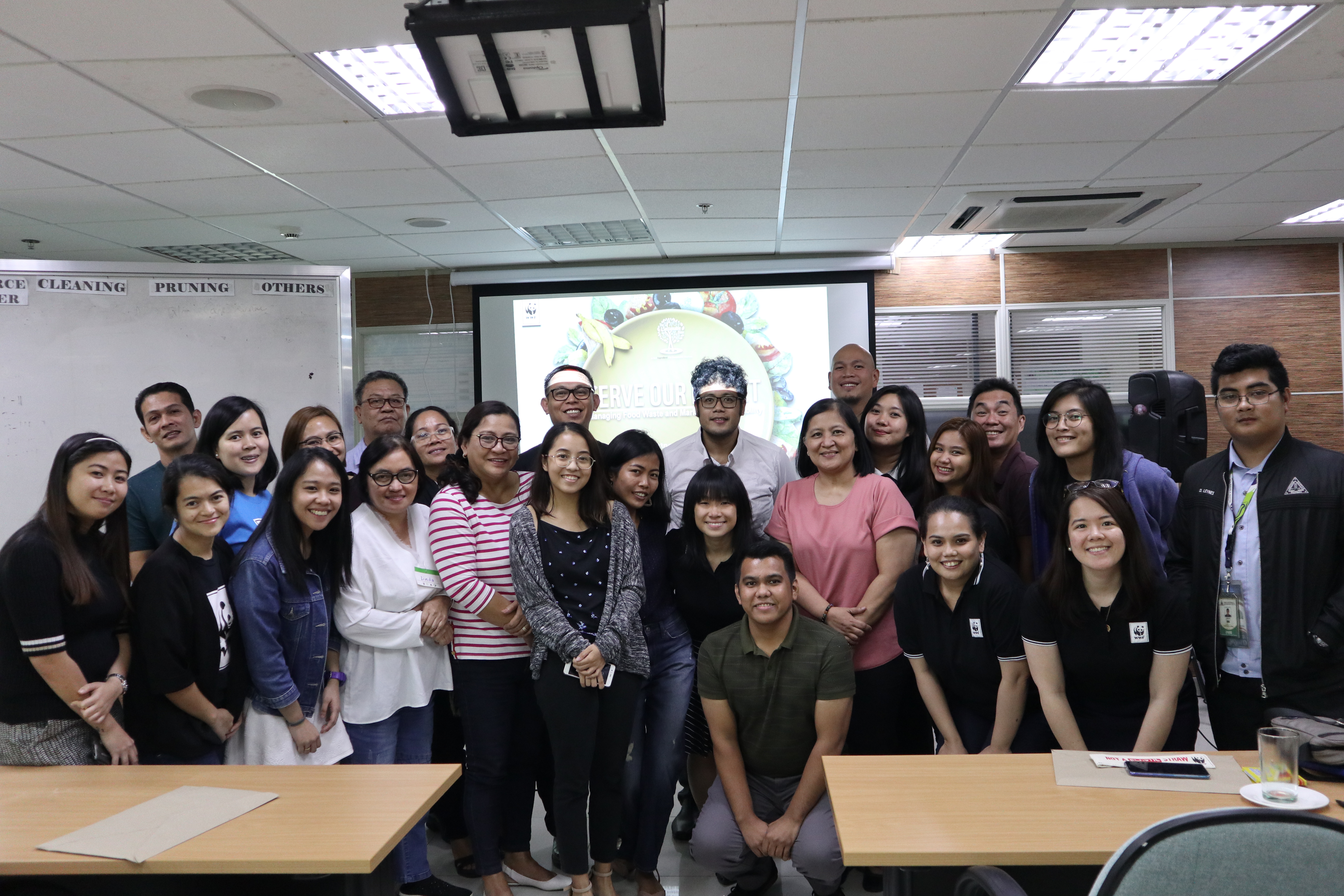
The participants of the Serve Our Planet: Food Waste Management and Marketing Sustainability training include representatives from HRAP, the project’s partner restaurants and organizations, and employees from the Quezon City LGU. Photograph (c) Gabriel Villalon / WWF-Philippines
Last March 26, 2019, World Wide Fund for Nature (WWF) Philippines’ The Sustainable Diner: A Key Ingredient for Sustainable Tourism project kicked off this year’s run of Serve Our Planet - a series that provides capacity development trainings and workshops for members of the foodservice industry - with two new training topics: Food Waste Management and Marketing Sustainability. Held at the EPWMD Conference Room of the Quezon City Hall, the aim of the training series is to equip the participants with the skills and knowledge needed in order to help their restaurants and hotels eliminate food waste, as well as ensure that their sustainability efforts are well-communicated to their diners. The first training of the year in Quezon City was held in partnership with the Quezon City Environmental Protection and Waste Management Department (EPWMD), the Quezon City Tourism Department, and the Hotel & Restaurant Association of the Philippines (HRAP).
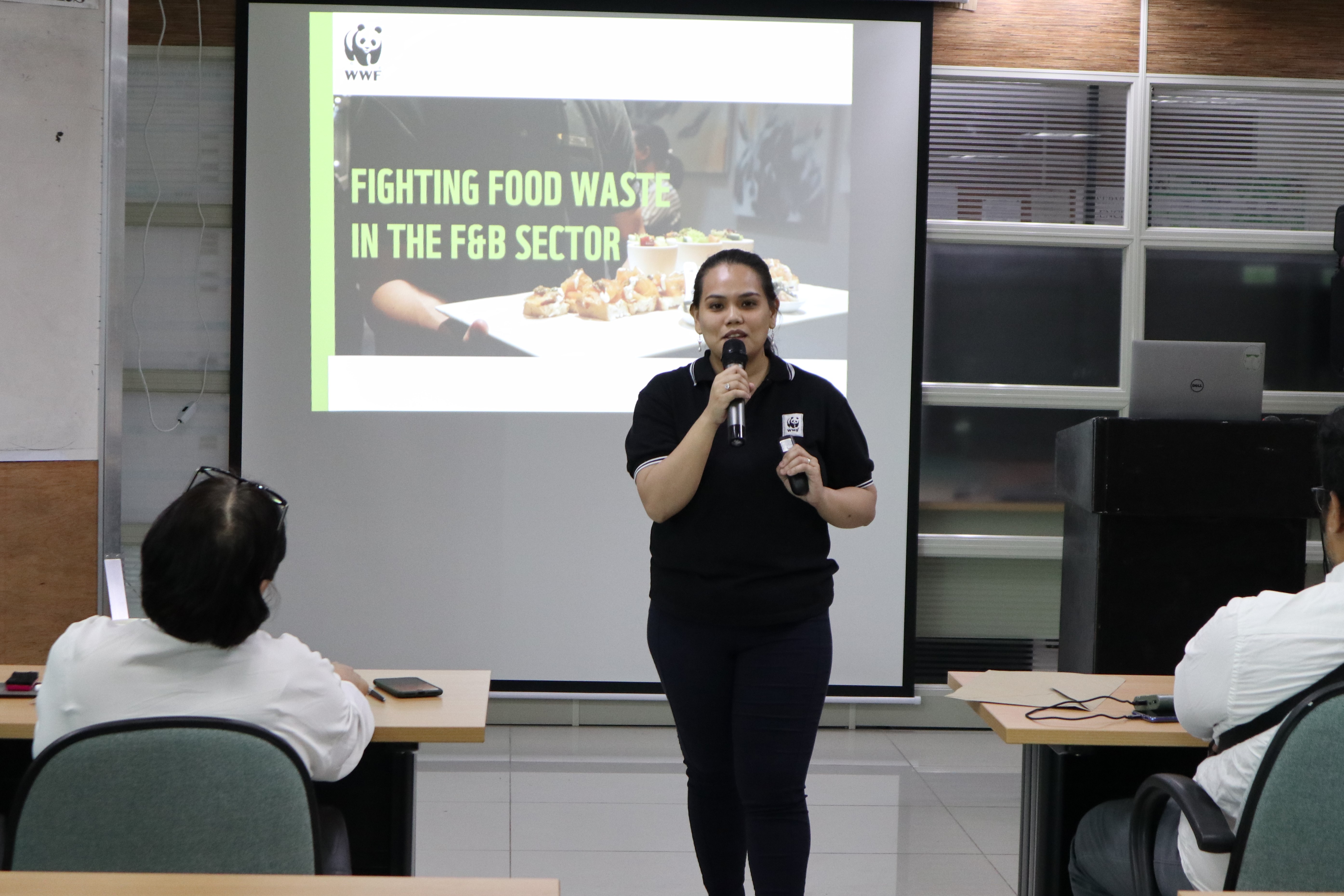
Melody Melo-Rijk, WWF’s Project Manager for Sustainable Consumption and Production in the Philippines, conducts the morning session on Food Waste Management. Photograph (c) Gabriel Villalon / WWF-Philippines
Melody Melo-Rijk, WWF’s Project Manager for Sustainable Consumption and Production in the Philippines, opened the training by providing project updates to the current stakeholders as well as giving a brief introduction about The Sustainable Diner project to those who attended the Serve Our Planet training series for the first time. She then proceeded with conducting the morning session on Food Waste Management, which she started with a presentation of statistics on the current hunger situation in the Philippines, followed by more numbers on the amount of food waste that we are producing as a country and as a global community. One of the important sentiments she shared with everyone is the fact that when food goes to waste, the resources that went into producing that food, such as soil, water, energy, and human effort, are also wasted. The participants were able to understand that reducing food waste is one of the easiest and most convenient ways to reduce the environmental impact of our current food system, an area where restaurants and hotels can play key, transformative roles.
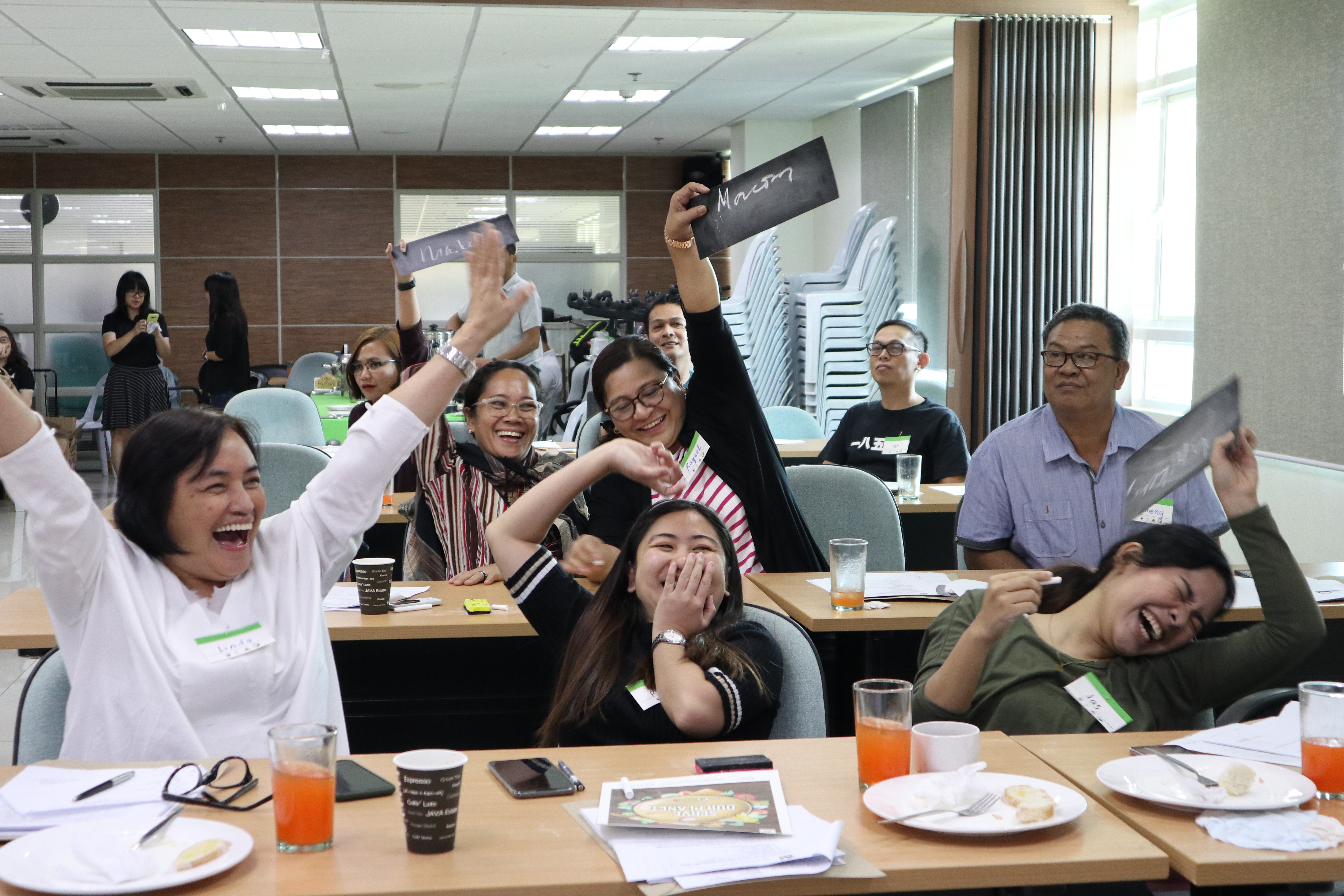
Some of the attendees unleashing their competitive and rowdy side during one of the Food Waste Management session’s multiple group activities. Photograph (c) Gabriel Villalon
Melo-Rijk also shared the Food Waste Management Toolkit with the participants. Developed by WWF US, in collaboration with the American Hotel and Lodging Association (AHLA) and with generous support from the Rockefeller Foundation, the toolkit’s overall goal is for partner companies and organizations to set-up a food waste management system, focusing on two major phases: food waste separation and food waste measurement. The participants actively listened to the discussion, as well as gamely participated in the various interactive activities which unleashed their competitive sides.
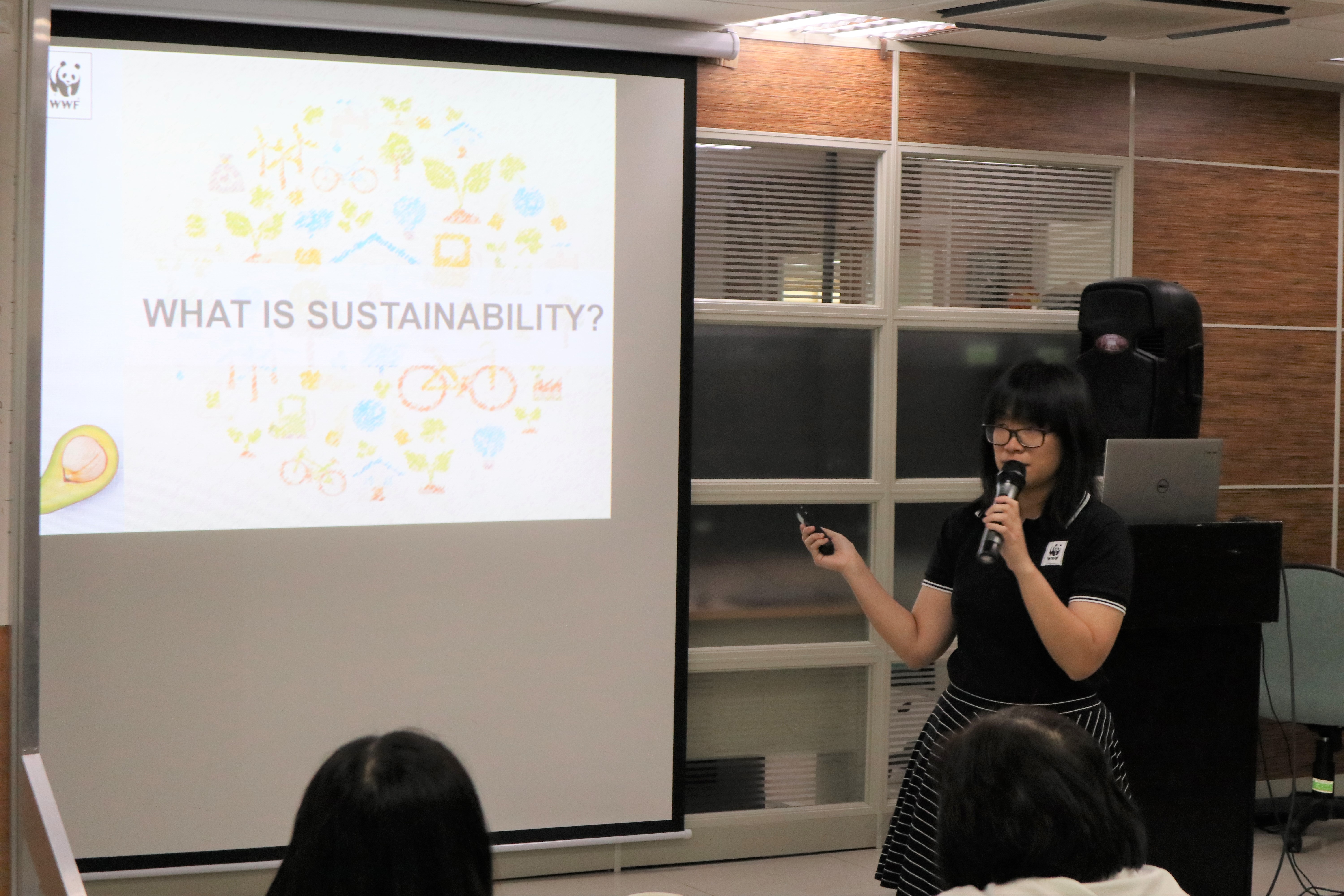
Pamela Luber, The Sustainable Diner project’s Integrated Marketing Communications Specialist, conducted the afternoon training session on Marketing Sustainability. Photograph (c) Gabriel Villalon / WWF-Philippines
Meanwhile, Pamela Luber, The Sustainable Diner project’s Integrated Marketing Communications Specialist, conducted the afternoon session on Marketing Sustainability, where participants learned how to go through a creative thinking journey when it comes to brainstorming, crafting, and finalizing their future sustainability-centric campaigns and collaterals. The session had five objectives in particular: to provide a standardized definition for sustainability, to identify which aspect of sustainability fits the values and identity of the restaurants and hotels, to understand how the mind and behavioral patterns of diners work, to come up with ideas on how to creatively execute the sustainability efforts of restaurants and hotels, and to share best marketing practices amongst each other. Throughout the session, the participants had to define what sustainability meant for their restaurants and hotels, align this with the mission and vision of their organizations, and conduct mini focus group discussions with one another. Their final training output was to come up with their very own sustainability campaign, complete with a slogan, a hashtag, and a visual.
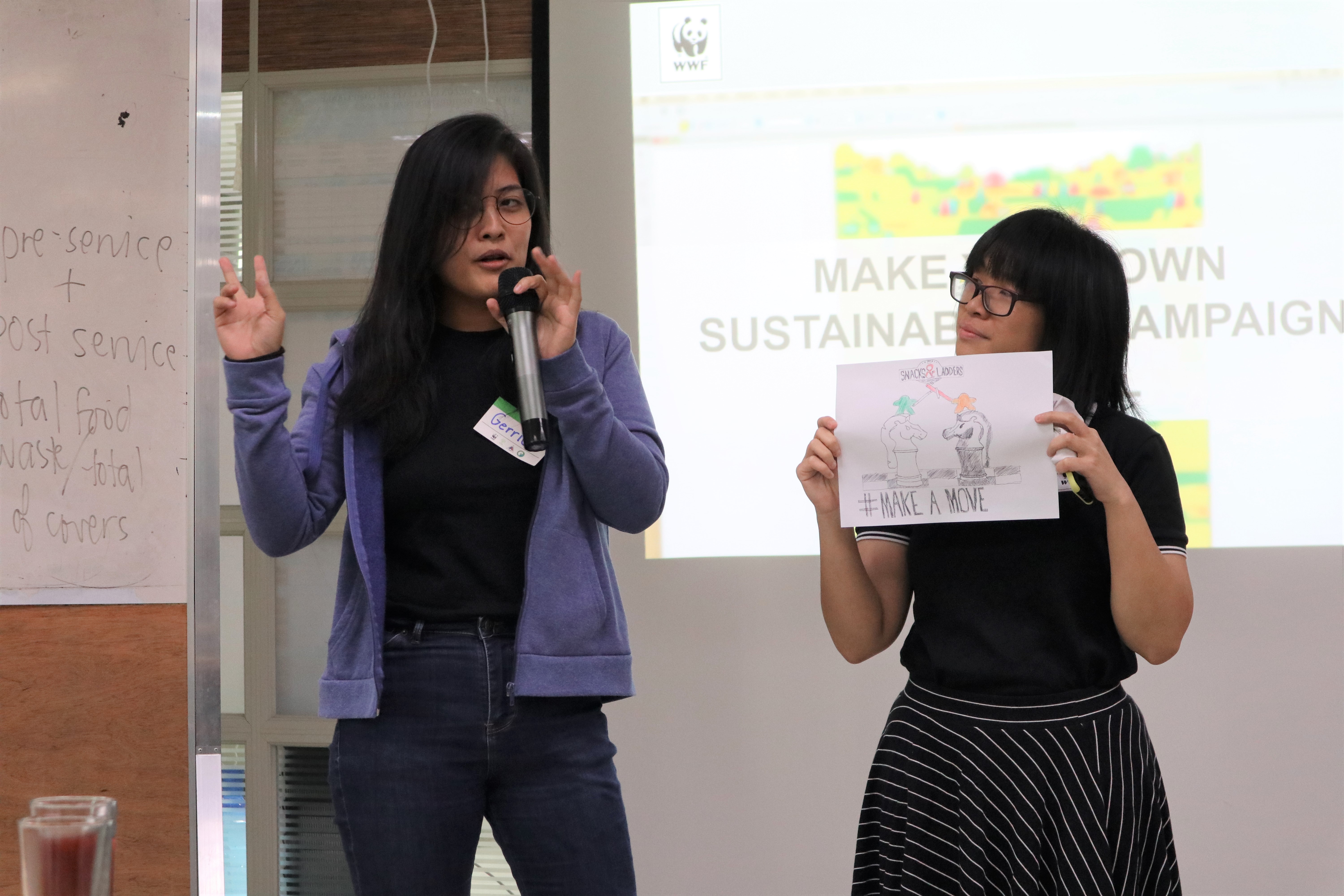
Gerrie Marie Soliman of Snacks & Ladders, one of the training participants, presents her sustainability campaign visual for her restaurant in front of the whole group. Photograph (c) Gabriel Villalon
Throughout the day, not only did the participants learn more about how food waste impacts the planet and how they, as restaurants and hotels, can help lessen the effects of climate change, they also got to experience first-hand how they can market sustainability efforts like this in the future. Here’s to more integration of sustainable dining principles in our local dining industry!
The Sustainable Diner project, under WWF-Philippines’ Sustainable Consumption and Production, is part of the International Climate Initiative (IKI). The Federal Ministry for the Environment, Nature Conservation, and Nuclear Safety (BMU) supports this initiative on the basis of a decision adopted by the German Bundestag.
